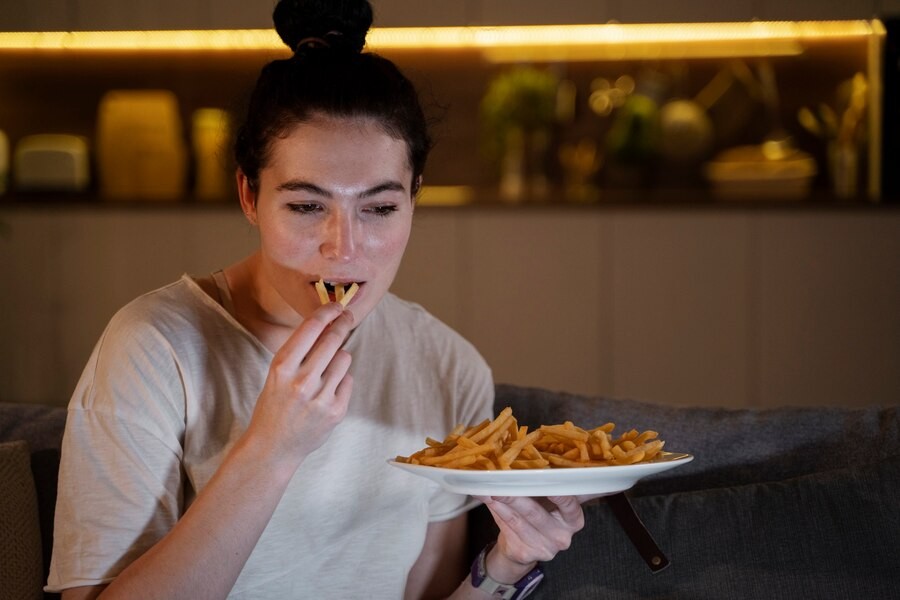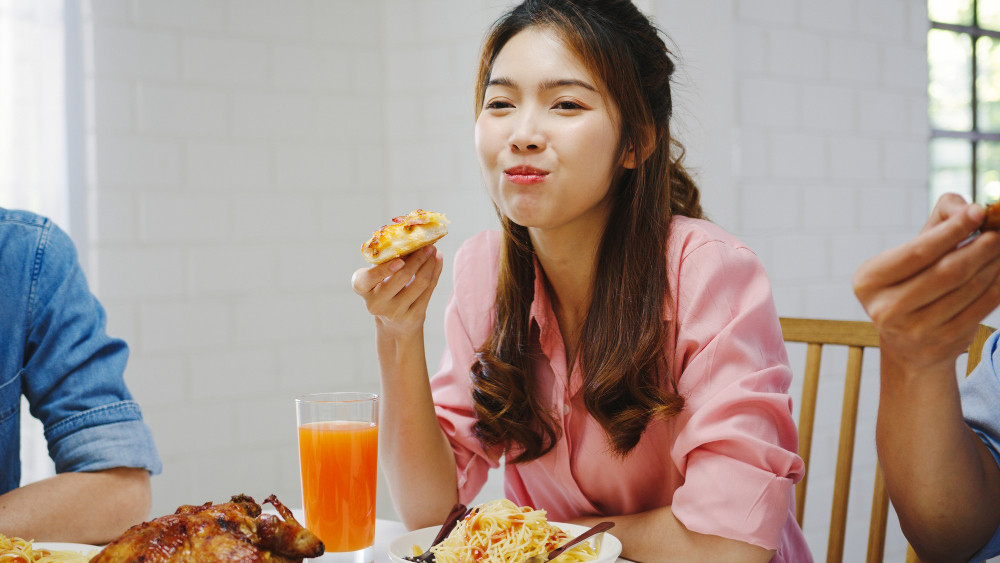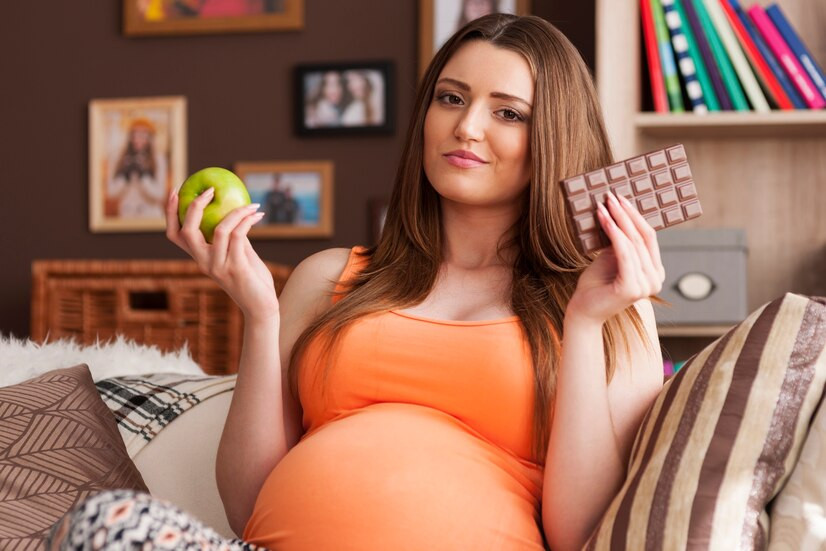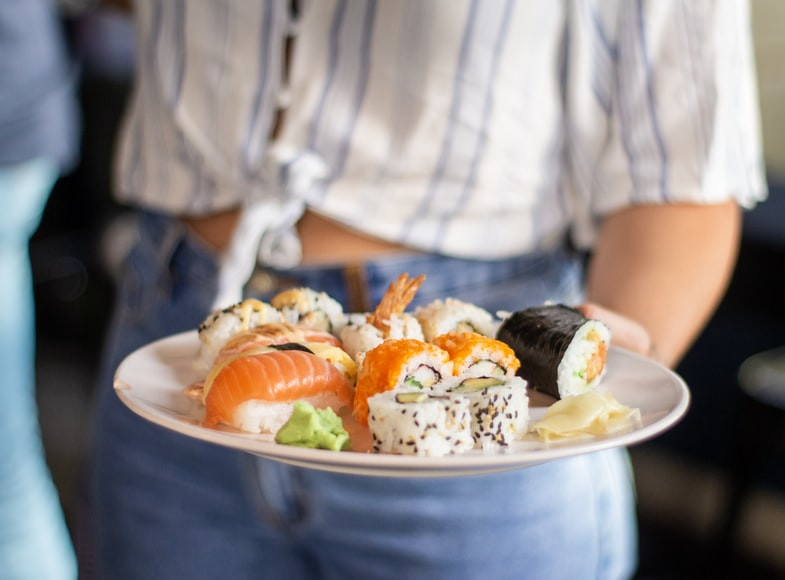Before menstruation, many women experience changes in appetite and may crave specific types of foods such as savory, sweet, or spicy items. This is a normal and common occurrence, but you may wonder what causes it.
In this article, we’ll explore the reasons behind why many women experience food cravings before their period.
Causes of Craving for Food Before Menstruation
There are several factors that contribute to increased food cravings before menstruation, including:
Hormonal Changes
Hormonal fluctuations are one of the main reasons for changes in appetite before menstruation. During the luteal phase, which occurs after ovulation and before menstruation, the body experiences a rise in progesterone levels.
Progesterone can stimulate your appetite, causing you to feel hungrier than usual. At the same time, estrogen, the hormone that helps suppress appetite, decreases right before menstruation, intensifying the urge to eat.
Decreased Serotonin Levels
Serotonin, a chemical that helps regulate mood and appetite, tends to drop before menstruation due to fluctuations in estrogen and progesterone.
A decrease in serotonin can trigger mood swings, and many people tend to crave sugary or carbohydrate-rich foods as a way to improve their mood. After eating these foods, feelings of comfort often follow, which is why you may find yourself wanting sweet treats like chocolate, candy, or ice cream.
Increased Needs of Energy
As menstruation approaches, your body requires more energy to prepare for the process. Studies show that the basal metabolic rate increases by 5-10% during this time, which can lead to a feeling of increased hunger and a desire to eat more than usual.
Impact of Water Retention and Bloating
In the days leading up to menstruation, your body tends to retain more water, leading to bloating and a general feeling of discomfort. This can make you crave certain foods to alleviate these unpleasant feelings.
Mood Swings
Hormonal shifts during this phase can also trigger mood swings, such as anxiety, irritability, or sadness. To cope with these emotions, many people turn to comfort foods, especially those that are known to improve mood, like chocolate, sugary snacks, or fatty foods.
If you find yourself craving more food before your period, don’t be too concerned. However, it’s important to make wise food choices by opting for healthy snacks such as fruits, nuts, or yogurt, and being mindful of portion sizes to help maintain stable blood sugar levels.
Additionally, drinking plenty of water can help curb hunger, and light exercise may help alleviate PMS symptoms.
If you have questions about PMS or experience troubling symptoms, you can consult a doctor via the Ai Care health service, available for download on the App Store or Play Store.
Want to learn more about other health topics? Click here!
- dr Nadia Opmalina
Jill Seladi-Schulman, Ph. D (2023). Food cravings before a period? New study could explain the reason. Available from: https://www.medicalnewstoday.com/articles/food-cravings-before-a-period-new-study-could-explain-the-reason
Manal M. Badrasawi, et all (2021). Binge eating symptoms are associated with the severity of premenstrual symptoms among university students, cross sectional study from Palestine. Available from: https://jeatdisord.biomedcentral.com/articles/10.1186/s40337-021-00425-5
Adrienne Santos-Longhurst (2023). Why You Want to Eat All the Things Before Your Period. Available from: https://www.healthline.com/health/period-cravings
Health.com (2024). Why Am I So Hungry on My Period?. Available from: https://www.health.com/condition/menstruation/the-truth-about-your-cycle-and-your-appetite
Charlene Laino. Is PMS Sabotaging Your Diet?. Available from: https://www.webmd.com/diet/features/is-pms-sabotaging-your-diet
Ayad Mohammed Salem, et all (2022). Variations of Ghrelin and Obestatin Hormones During the Menstrual Cycle of Women of Different BMIs. Available from: https://pmc.ncbi.nlm.nih.gov/articles/PMC9464778/
Pratyusha R. Gudipally and Gyanendra K. Sharma (2023). Premenstrual Syndrome. Available from: https://www.ncbi.nlm.nih.gov/books/NBK560698/












